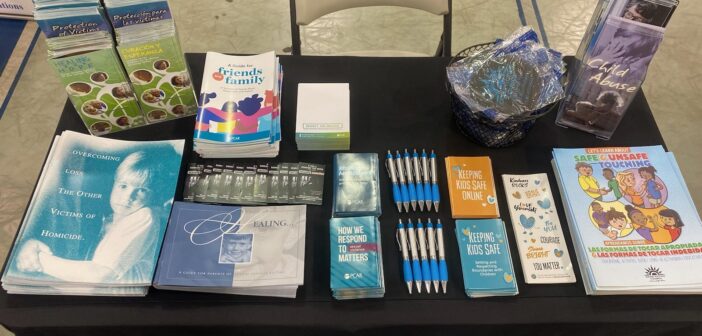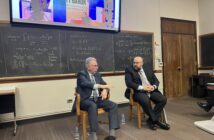The Crime Victims Council of the Lehigh Valley held an event about drugs, alcohol and consent in STEPS on Oct. 7 to educate students on critical issues related to sexual violence.
Elyse Hortner, the outreach educator for the Crime Victims Council, centered the event on the importance of consent followed by the effects of intoxicating substances and strategies for bystander intervention.
She said the event’s key theme was to define what consent is and isn’t, as she referenced Lehigh’s official definition of consent — which underscored that consent is a mutual agreement.
“We think that most college students know about sexual assault but don’t know the reality of what it looks like on a college campus,” Hortner said.
Students participated in scenarios simulating real-life college situations, using a thumbs up or thumbs down signal to indicate whether consent was present.
Hortner said her goal is to equip students with knowledge of boundaries, communication and risk reduction.
The session focused on the reality of drug-facilitated assaults, explaining how substances and drugs like alcohol, ketamine, Rohypnol, GHB, ecstasy and over-the-counter drugs can be used to impair a person’s ability to give consent.
Hortner also said it’s important to note these drugs are often odorless, colorless and tasteless.
Annalena King, ‘28, attended the event to learn how to be more assertive in potentially dangerous situations. She said the event increased her awareness of how situations can look different.
“It’s a gray area when it comes to drugs and alcohol,” King said. “If two people are under the influence, it could kind of affect the situation. You don’t know if they really gave consent or not.”
Hortner encouraged students to speak out if they witness offensive or harmful behaviors and said they should offer support and empathy when a friend seeks help.
Crimes Victims Council members introduced what they call the SSABER method — Stay calm, Support, Affirm, Believe, Empower and Report — as a protocol for students to use when responding to someone who discloses an assault.
Bridget Martin, ‘25, a peer educator of Break the Silence, said it’s important to teach students how to clearly communicate their wants, needs and boundaries in all intimate encounters.
“One common misconception is that drug or alcohol-facilitated sexual assault can only occur through the use of “date rape” drugs, like Rohypnol,” Martin said. “Drug and alcohol-facilitated sexual assault can take many forms, such as purposefully getting someone too drunk or high to consent to sexual contact or through the use of prescription or party drugs, such as Xanax.
The council is a free community resource that provides confidential counseling services, peer support groups and a 24-hour hotline at 610-473-6610. The council’s office is located at 2132 S. 12th St., Suite 101 in Allentown and can be contacted via email at [email protected].






Comment policy
Comments posted to The Brown and White website are reviewed by a moderator before being approved. Incendiary speech or harassing language, including comments targeted at individuals, may be deemed unacceptable and not published. Spam and other soliciting will also be declined.
The Brown and White also reserves the right to not publish entirely anonymous comments.